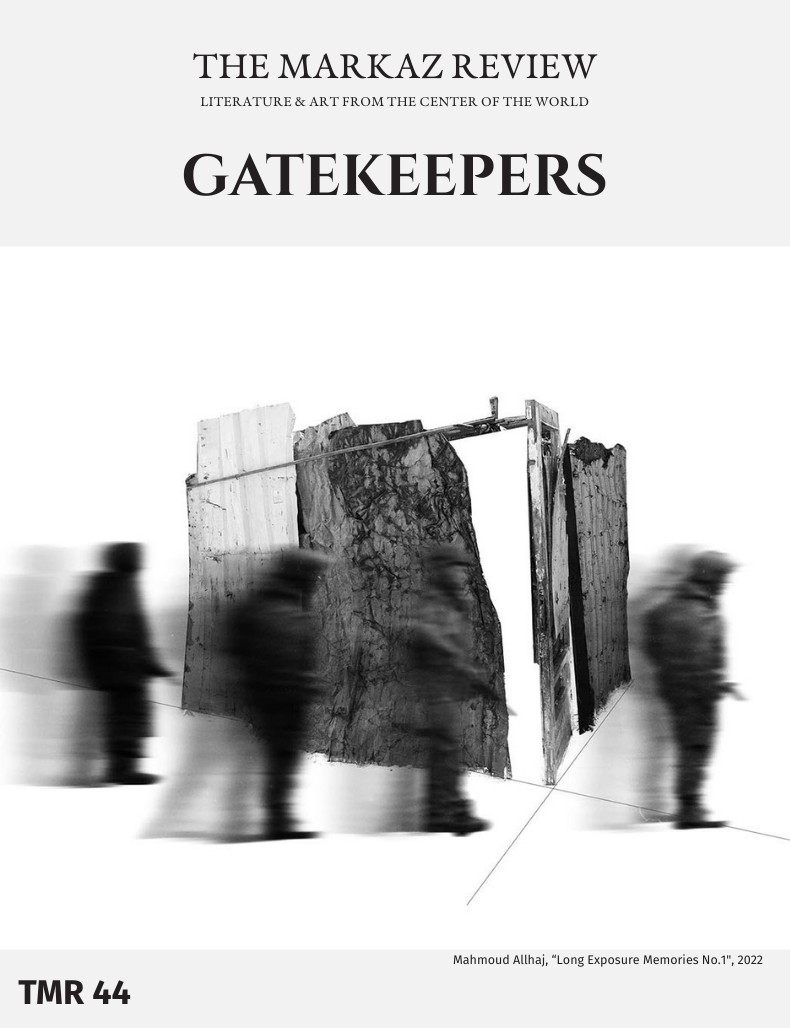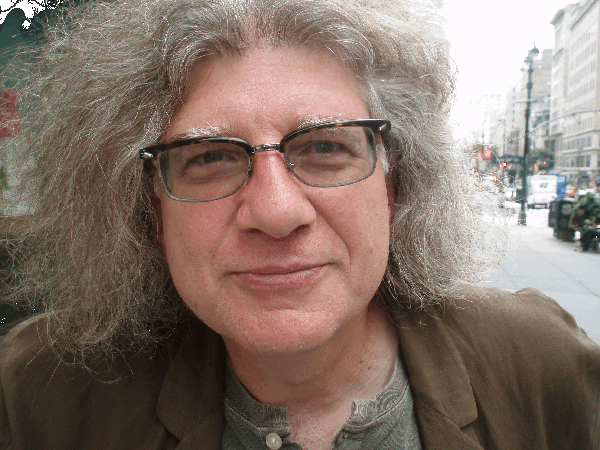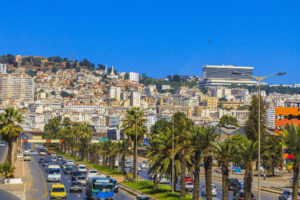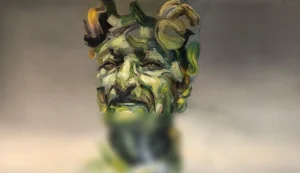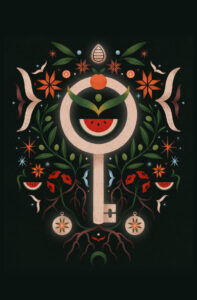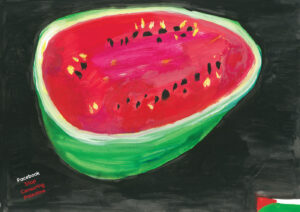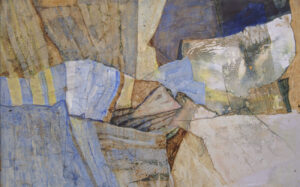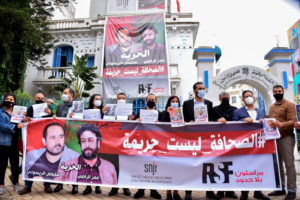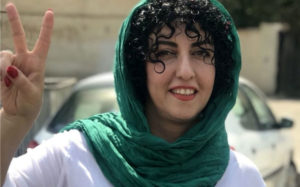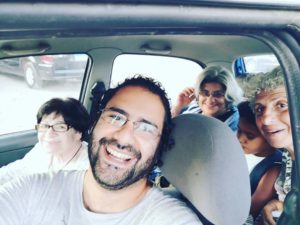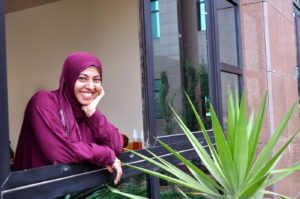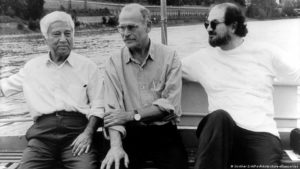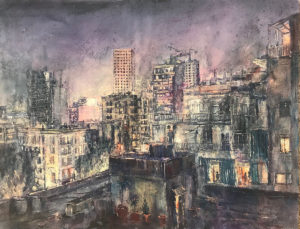Ammiel Alcalay writes of the gatekeepers who have affected every aspect of his writing, cultural, and public life.
Sometime in the early 1980s I was flabbergasted to get a letter from Edouard Roditi, postmarked from Paris. I had certainly been aware of Roditi, as a poet, author of books on Oscar Wilde and the explorer Magellan; translator of Yashar Kemal’s Mehmed, My Hawk (from Turkish to English), as well as so many other truly varied forms of expression. His letter referred to a translation I had done which he saw in a magazine, then mentioning that he would soon be in New York and would be happy to meet. I learned a lot more about him in the coming years, as we saw each other whenever possible and corresponded regularly. I learned that he had been a simultaneous translator at Nuremberg, also doing translation work on the UN Charter, and that he once harbored the great Algerian revolutionary poet Jean Sénac in his Paris apartment during Algeria’s war for independence from France. And that is just the tip of the proverbial iceberg, in a life of extraordinary encounters. Hopefully, the forthcoming Worldwise: Édouard Roditi’s Twentieth Century, a selection of his varied writings, will introduce this much neglected figure to the wide readership he deserves.
Though I was in my late 20s and Edouard in his early 70s, we found immediate common ground and mutual enthusiasm in our first meeting, an excitement about things to which only we seemed privy. Much of this had to do with our parallel efforts at gathering the writings of Jews from around the Mediterranean, the Balkans, North Africa, the Arab world, Turkey, Iran, Central Asia, and India. I very much regret him not being able to see the published version of my book After Jews and Arabs: Remaking Levantine Culture, out less than a year after his death in 1992, since his knowledge and inspiration was such an integral part of it. But that was prevented by the gatekeepers of the time.
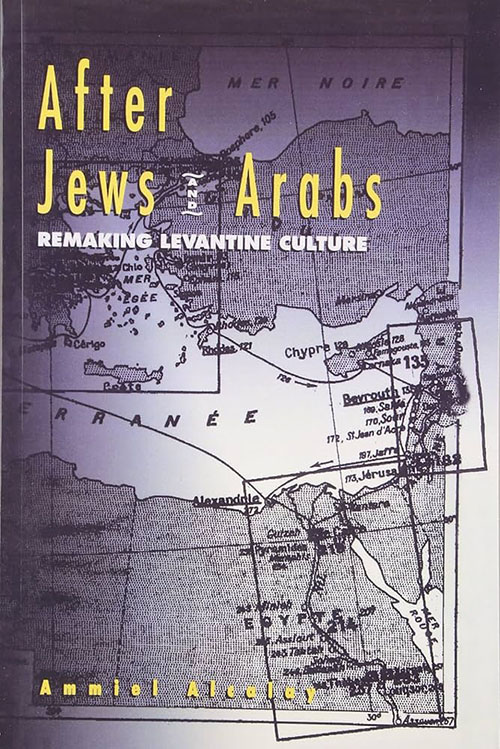
While I have recounted this story elsewhere, it is worth retelling here. Over the course of several years, Edouard and I planned a huge anthology, beginning with the pre-Islamic poet Samaw’al ibn ’Adiya, and ending in the 20th century, including — besides literary genres — exegetical, medical, scientific, philosophic, and all kinds of other texts from more than a dozen languages produced in the communities of this once coherent world. When our proposal was presented to the University of California Press, the single academic member of the editorial board whose field was “Jewish Studies,” Prof. Arnold Band, could not understand the connection between Arabic and Spanish sources. While this might seem laughable today, it was actually the ostensible issue that resulted in the rejection of the project circa the mid 1980s.
At the time I was a doctoral student at the Graduate Center of the City University of New York, but found myself increasingly reluctant to actually finish my PhD. Part of this had to do with things I was involved in while living in Jerusalem during that period, prior to and during the first intifada. But the rejection of our project also made me realize that a very broad introduction would have to be written in order to activate the possibilities the project was meant to present. It was only then that I began focusing more earnestly on the structure of what would become After Jews and Arabs. From the perspective of the present, and the ongoing genocidal assault by Israel on Palestine, I have very mixed feelings about aspects of After Jews and Arabs.
Much of the thinking in the book was formed by my experiences in Jerusalem, working with Palestinian anti-occupation and human rights groups, Mizrahi political and cultural groups, and all the events — including the release of 1150 Palestinian prisoners in a 1985 exchange with Israel, and the kidnapping and imprisonment of nuclear technician Mordekhai Vanunu — that undergirded the first Intifada. Given the delay in publication of the book, it was impossible to include the momentous and disastrous political shift from the Madrid Conference to the Oslo Accords, largely sidelining the local Palestinian leadership of the Intifada, within the already enormous scope of the book. I could go on, but suffice it to say that whatever hopes I might have once harbored about common life were then already retrospective, at least in my own interpretation of the book.
More recently, I published A Bibliography for After Jews and Arabs, laying out, in great detail, the process that went into the rejection of the book by several publishers and their gatekeepers. It was the first time I felt as if I were presenting the whole picture on my own terms. In an earlier collection, Memories of Our Future, I had published the readers’ reports on After Jews and Arabs from two presses, and my refutations — a tug of war that took about three years before the University of Minnesota Press published the book through an editor who had come from commercial publishing and simply asked me to present him with readers who would approve the book. Though I certainly am a scholar, and was even recently named a Distinguished Professor, over the course of thirty-one years since the publication of After Jews and Arabs, I have never published a book with a university press again, nor am I planning to try.
While I may have mixed feelings about After Jews and Arabs, I do not have mixed feelings about gatekeepers: they are everywhere, and have affected every aspect of my writing, cultural, and public life. While I am speaking of my own experience here, I am also drawing on the experiences of many others. I could go on at length, with example after example: as a poet, critic, translator, scholar, professor, journalist, political commentator, editor — there isn’t an experience or role I can think of in which some kind of gatekeeping hasn’t been involved. And the reasons for exclusion, marginalization, even slander, range widely. A public attack on me by neo-cons, for example, which listed various institutions and arts groups with which I was associated, led to the loss of a grant to Beyond Baroque in Los Angeles, a nonprofit arts center that at the time was about to publish the collective translation of Faraj Bayrakdar’s A Dove in Free Flight, co-edited with the late Shareah Taleghani. It took us sixteen years to find another publisher.
More obviously, my anti-Zionist and pro-Palestinian positions, over the course of 40 plus years, have precluded me from all kinds of opportunities that would have readily presented themselves had I not been so vocal and public. But my aesthetic as well, the tradition of poetics and writing I emerge from, being far from conventional or mainstream, also has presented a host of problems. While names and allegiances change, sometimes to the better but not always, gatekeeping remains very much in force, no matter how seemingly friendly or inviting its new iterations might appear.
I do not have mixed feelings about gatekeepers: they are everywhere, and have affected every aspect of my writing, cultural, and public life. While I am speaking of my own experience here, I am also drawing on the experiences of many others. I could go on at length, with example after example: as a poet, critic, translator, scholar, professor, journalist, political commentator, editor — there isn’t an experience or role I can think of in which some kind of gatekeeping hasn’t been involved. And the reasons for exclusion, marginalization, even slander, range widely.
My own way of dodging the obstacles constantly presented has been through building and nurturing networks of trust, and finding ways to move in and out of different modes of work and presentation. Sometimes this has meant withdrawing from one kind of activity to another; there are long periods where my focus has been on political commentary or translation rather than poetry or prose. Sometimes it has meant creating an institution or structure, however small, or using the structure of an institution (in my case a university), in order to create some kind of temporary autonomous project within it, as I have done with Lost & Found: The CUNY Poetics Document Initiative.
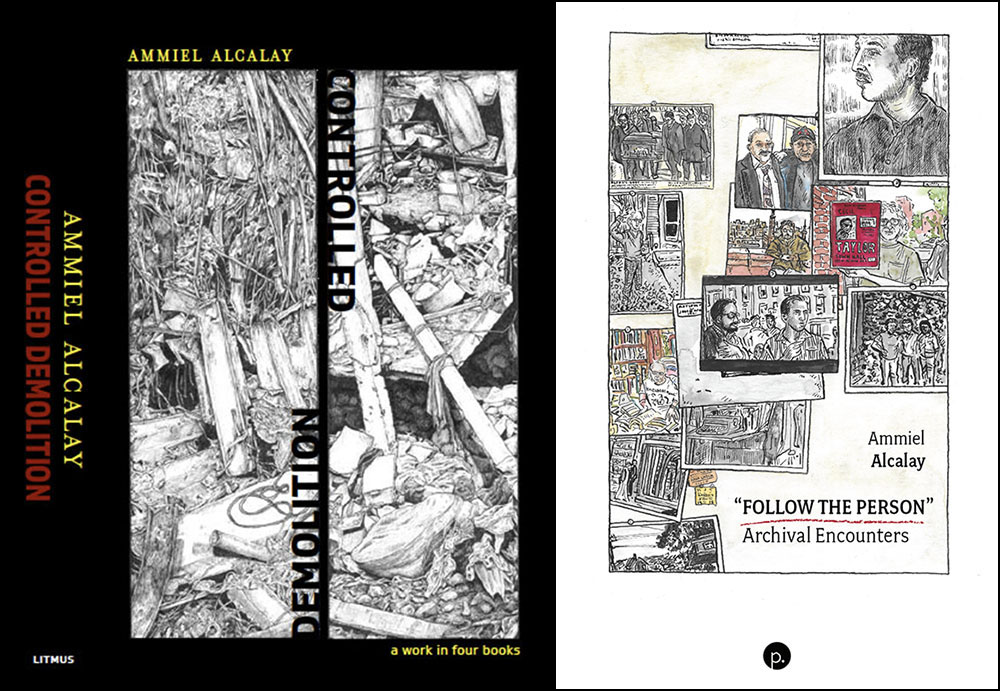
Though certainly frustrating at times, blockades by gatekeepers have, more often than not, led to avenues of greater expression for me. After being, so to speak, “cancelled” by venues I used to write for regularly after the events of September 11, 2001, I was given an open-ended column by friends in Bosnia and Croatia in very prominent magazines. While I saw many of my peers in the US censored and self-censoring, I found myself on a glossy cover declaring “Bush Prepares for Armageddon” as the “war on terror” ramped up. And through Edward Said, I ended up writing for al-Ahram English on occasion, where — at least at the time — I was able to cover things and express ideas that would have been completely unacceptable in US venues. The incredibly dispiriting inability to publish the aforementioned collective translation of Syrian poet and former political prisoner Faraj Bayrakdar, made it all the more powerful and resonant when it finally was published. And rejection of a piece actually solicited by Jewish Currents in 2021, in which I chose to write about Ezra Pound, led to a query from Irakli Qolbaia, a poet in Tbilisi, who translated it into Georgian and gave it to a friend, Dato Barbakadze, who was inspired to create an anthology of texts centered around my piece. Rejection of the piece itself was due to my refusal to explicitly call Pound an “anti-semite” or “fascist” since the point of my piece was to juxtapose Pound’s imprisonment in May 1945, with the simultaneous processing, by various US state agencies, of numerous major Nazi figures who found ready employment in the US and would go on to become the architects and foot soldiers of US Cold War policy.
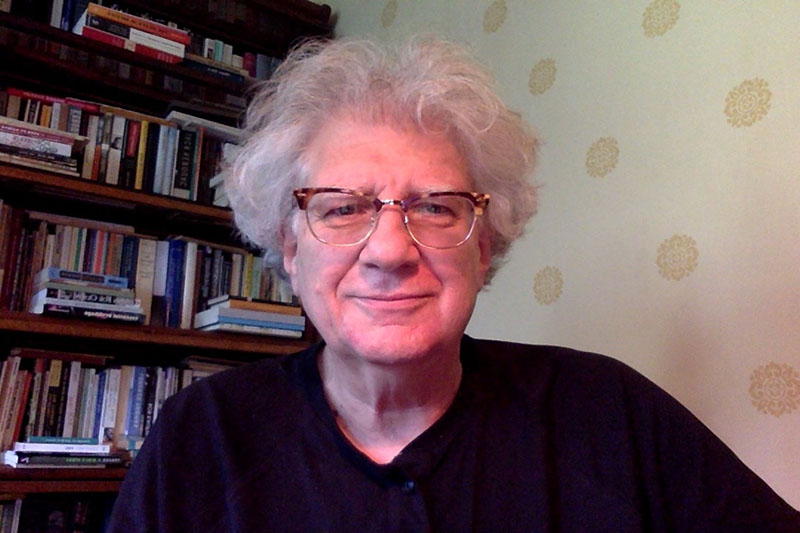
This might not at all be obvious, but a great part of what I think is involved in combating gatekeepers is the process of historicizing oneself and exposing the processes and circumstances involved during the production of one’s work. This impulse to examine and bring things to light has become all too uncommon in a competitive arena based on scarcity, where people are constantly jockeying for position, regardless at what level of the pecking order.
In a quote cited in After Jews and Arabs, the great Egyptian film director Yusef Chahine said: “Memory is confrontation with oneself. You must first confront yourself before confronting other people, or a whole country, or the whole Arab nation. That’s also the political context of memory, as you look back at yourself caught in the American dream or the pseudo-socialist dream you gradually move forward. The final confrontation is when you ask if you accept yourself. Because if you can’t communicate with yourself, how can you communicate with others?”
Reconciling such sentiments to the “marketplace of ideas,” where decades of work might be reduced to an editor’s 30-second opportunity to pitch a book to a distributor’s sales team, may feel insurmountable. But it would be wise to remember—as we push, each in our own way, against the obstacles marshaled against access to the means through which we can express ourselves — that we still operate in arenas of struggle, and that friendship, memory, connection, and trust, remain some of our most precious resources.
What is at stake, finally, is the actual transmission and sustainability of cultural and political forces whose resilience can be counted on, no matter the size of its following. My own experience, at least regarding the US, is that non-commercial, less institutionalized efforts, ultimately, have much greater influence and a longer shelf life than ready-to order, more mass-produced consumables. Of course, in the cultural world, that proportionality is highly relative. After Jews and Arabs, for instance, even though it is the only book of mine published by a university press, has sold less than 2,000 copies over the course of 30 years, but has become an essential resource for what is now a third generation of scholars. While I translated many books for commercial publishers and major pieces for the likes of the New York Times Magazine and Time during the war in Bosnia, the work I translated from that time that remains in-print and still circulates are books by Semezdin Mehmedinović, published by City Lights. The Lost & Found project, published as an annual series of chapbooks that sell between 1,000 and 2,000 copies, has had an enormous impact on various areas of archival research, scholarly training in the humanities, literary history, and the intersection of public facing work, publishing, and cultural preservation. While this stance may seem highly unfashionable and appear almost antithetical in the age of social media, identity politics, influencers, and instant fame, it seems to me one of most useful ways to stand against the truly destructive forces that want our only experiences to take place in a constantly disappearing and evanescent present.




